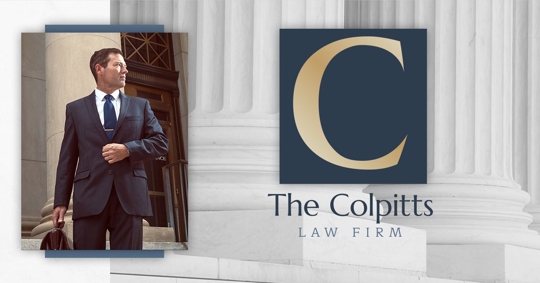On April 23, 2019 the Bankruptcy Court for the Northern District of Oklahoma entered a lengthy 87 page opinion awarding the Debtor $50,000.00 in damages for emotional distress, $54,867.00 for her attorney’s fees, and $100,000.00 as punitive damages against the creditor and creditor’s counsel. NACBA member Ron Brown spearheaded the case along with NACBA member Greggory Colpitts.
In reaching this decision, the bankruptcy court ruled on several issues important to all debtors including
- Whether a post-discharge judgment in state court is void ab initio;
- Whether a bankruptcy discharge must be asserted and proved by the Debtor in a post-discharge proceeding;
- Whether the Rooker-Feldman doctrine applies in this case;
- Whether the bankruptcy court had jurisdiction to determine if their state court post-petition claim included discharged debt;
- Whether the Debtor lost the protection of her discharge by pleading it in the state court action;
- Whether the doctrine of issue preclusion prevented the bankruptcy court from ruling whether the state court judgment was discharged; and
- Whether the Creditor can be held jointly liable with her counsel for sanctions.
Background history of this case
Prior to filing bankruptcy, the Debtor worked as an ophthalmologist through her corporation. She then decided to purchase an ongoing practice and some equipment from another ophthalmologist’s probate trust (the Creditor). The purchase was financed by a promissory note and a lien on certain assets to the Creditor in the amount of $100,000.00. Both the Debtor and her corporation signed the note.
The new practice was not successful. The Creditor filed a petition in state court for unjust enrichment (since the loan documents were not found). The suit was against the Debtor and her corporation. The Debtor then closed her practice, stopped seeing patients and referred the remainder of her patients to other doctors.
The Debtor then filed a chapter 7 bankruptcy petition. The Creditor was notified. Creditor’s counsel attended the 341 meeting of creditors and conducted a 2004 exam of the Debtor. However, no complaint to object to discharge was filed and the Debtor received her discharge. The Creditor did file a motion for relief from stay asking permission to continue discovery against Defendant’s corporation which was granted. Additionally, the court denied a separate creditor’s motion for relief from stay to pursue her pre-petition intentional tort action against the Debtor because the debt was discharged.
A few days later Creditor and Creditor’s counsel discussed dragging Debtor back into state court to defend against allegations of post-petition fraud. They amended their original suit to add a claim for post-petition transfer of assets from Debtor’s corporation to the Debtor. The amended suit did not delete the pre-petition claims against the Debtor.
The Debtor rehired her bankruptcy counsel to defend her. Through counsel, Debtor filed an answer to the amended complaint which asserted that the Creditor was violating the discharge injunction. Debtor’s counsel requested several times to Creditor’s counsel that the counts in the original complaint be dismissed.
Debtor then filed the complaint against the Creditor and Creditor’s counsel in the bankruptcy court. Debtor’s counsel again demanded that Creditor dismiss the counts on the pre-petition causes of action. Eventually, they were dismissed, and Creditor’s counsel indicated he did not intend to litigate discharged claims or submit evidence for pre-petition events at trial.
However, at the close of trial Creditor’s counsel surprised the Debtor by expanding the fraudulent transfer claim to include supposed transfers to Debtor of Envision’s goodwill, furniture, equipment, and uncollected receivables, and asking for judgment against Renfrow in the amount of $120,000. Debtor’s counsel objected twice during the Creditor’s closing argument.
The jury returned a verdict in favor of the Creditor in the amount of $89,500.00. This verdict was timely appealed and is pending.
The Debtor returned to the bankruptcy court to pursue her sanctions complaint. After trial, the court found that Creditor’s counsel knowingly misled the jury regarding the alleged transfer of goodwill, that Creditor and counsel brought the post-petition claim as a vehicle for collecting on discharged debt. The court awarded the Debtor $50,000.00 in damages for emotional distress, $54,867.00 for her attorney’s fees, and $100,000.00 as punitive damages against the creditor and creditor’s counsel.
In reaching this decision in In re Renfrow, Nos. 17-10385-R, 17-1027-R, 2019 Bankr. LEXIS 1301 (Bankr. N.D. Okla. Apr. 23, 2019) the court analyzed the following issues.
- Whether a post-discharge judgment in state court is void ab initio-
“In the event the discharge injunction and possibility of contempt fails to restrain a creditor from suing a debtor to collect a discharged debt, the Bankruptcy Code provides that any judgment that imposes in personam liability on the debtor for a discharged debt is void ab initio. Section 524(a)(1) “voids any judgment at any time obtained, to the extent that such judgment is a determination of the personal liability of the debtor with respect to any debt discharged under section 727 . . . whether or not discharge of such debt is waived. (Citation omitted.)” Id. at 53-54.
Later in the opinion the court added “The plain language of § 524(a)(1) renders judgments that impose personal liability on a debtor for discharged debt void. The statute is self-executing and applies to any judgment, entered prepetition or postpetition, that purports to impose liability for discharged debt. Such a judgment is void by operation of law.
“The legislative history indicates that § 524(a) was enacted to address —a perceived abuse arising from the former status of a bankruptcy discharge as merely creating an affirmative defense that was waived if not affirmatively pleaded and proved in postbankruptcy litigation. . . . Congress was expressly making it possible for a discharged debtor to ignore a creditor’s subsequent action in a nonbankruptcy court.(Citation omitted.)” Id. at 62.
- Whether a bankruptcy discharge must be asserted and proved by the Debtor in a post-discharge proceeding-
The court held the discharge is automatic. “’The affirmative nature of the defense of discharge in bankruptcy . . . was effectively outlawed in 1970. It became an absolute defense that relieved a discharged debtor from the need to defend a subsequent action in state court.’ Thus, while Defendants blame Renfrow and her counsel for not anticipating that Grogan would claim Renfrow fraudulently transferred $120,000 worth of Envision’s assets, and for not introducing evidence at trial to prove that any such transfers were made prepetition, a discharged debtor is not required to prove anything to preserve her discharge.” Id. at 63-64.
Furthermore, “[a]s the enjoined party, [the Creditor] bore the risk of violating the injunction. She and her counsel had the burden, and the duty, before asking the jury to impose personal liability on [the Debtor], to ascertain whether the conduct supporting the claim occurred prepetition or postpetition. [Creditor’s counsel] had a duty to abstain from asking, in closing argument, for damages for transfers that happened, if at all, prepetition.” Id. at 64-65.
- Whether the Rooker-Feldman doctrine applies in this case-
The court held that Rooker-Feldman does not apply when state and federal courts have properly assumed concurrent jurisdiction on the same or related matter. Furthermore, because the state court judgment was not final (still on appeal) the doctrine didn’t apply. Finally, the court held that the bankruptcy sanctions matter was not an appeal and instead sought to enforce the discharge injunction. Id. at 68-69.
- Whether the bankruptcy court had jurisdiction to determine if their state court post-petition claim included discharged debt-
Echoing the Rooker-Feldman doctrine the Creditor argued that pursuant to In re Flanders, 657 Fed.Appx. 808 (10th Cir. 2016) since the determination of the Creditor’s cause of action was made and ruled upon by the state court, the bankruptcy court had no jurisdiction to review it. The court interpreted this case, and others by the 10th Circuit to state that while, in some cases, while an erroneous state court determination regarding the scope of dischargeability may be precluded by Rooker-Feldman, other claims, including contempt and sanctions actions for pursuing discharged claims did not trigger Rooker-Feldman.
Importantly, the court noted again that the state court action was not final when the bankruptcy court entered its decision.
- Whether the Debtor lost the protection of her discharge by pleading it in the state court action-
Creditor argued that since Debtor asserted her discharge in the state court lawsuit that she chose that forum to determine dischargeability and must live with the result. The court found that the Debtor had four options that were not mutually exclusive including 1) removing the matter to bankruptcy court, 2) reopening the bankruptcy case to file a proceeding to determine dischargeability under Bankruptcy Rule 4007(b), 3) asserting the defense in state court and allow the state court to determine dischargeability or 4) filing an adversary complaint in bankruptcy court to enforce the injunction. Renfrow, at 71-72.
- Whether the doctrine of issue preclusion prevented the bankruptcy court from ruling whether the state court judgment was discharged-
The court determined it was not precluded from making findings and conclusions inconsistent with the state court judgment in the process of considering whether the discharge was violated. The court noted that the Full Faith and Credit Act requires a federal court to give the same full faith and credit to a judgment of a state court as such judgment is given by law or usage in the courts of such State. So, the bankruptcy court looked to Oklahoma’s doctrine of issue preclusion which requires in pertinent part that there is a final judgment and the party against whom estoppel is asserted had a full and fair opportunity to litigate the issue in the previous forum.
As stated before, the court determined that the state court action was not final being on appeal. Furthermore, the court found that Creditor’s counsel’s ambush at trial deprived the Debtor of a full and fair opportunity to litigate the issue.
- Whether the Creditor can be held jointly liable with her counsel for sanctions.
The court noted that “[w]ell settled principles of agency law apply to the attorney/client relationship, however, and [the Creditor] as principal, cannot distance herself from the acts her attorney/agents took on her behalf. “A principal is subject to liability to a third party harmed by an agent’s conduct when the agent’s conduct is within the scope of the agent’s actual authority or ratified by the principal; and (1) the agent’s conduct is tortious, or (2) the agent’s conduct, if that of the principal, would subject the principal to tort liability.” “An agent acts with actual authority when, at the time of taking action that has legal consequences for the principal, the agent reasonably believes, in accordance with the principal’s manifestations to the agent, that the principal wishes the agent so to act.” Renfrow, at 80.
Practice Pointers
- In similar situations, to avoid Rooker-Feldman and claim preclusion issues, advise your clients to file a contempt action in bankruptcy court at the earliest opportunity.
- Don’t give up the fight. Greggory Colpitts complemented Ron Brown on this case stating “Ron spearheaded that case and despite every other attorney telling him that he had no case he pushed the case forward.”
- Litigate discharge violation cases, pursue discovery, and be prepared for trial as was done in this case.


